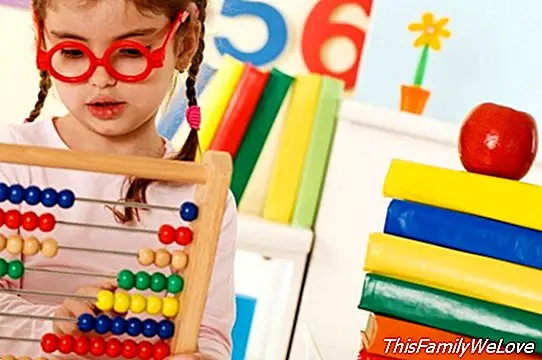Boys and girls equally skilled in mathematics

Culture often reinforces the belief that mathematics is a boy's thing and this germinates in the creation of a stereotype threat. So, the girls to feel that being good in math it is a masculine attribute, unconsciously they yield less in this science. Under these conditions, the fear of confirming the negative bias degenerates into a lower return than the real one.
Boys and girls equally skilled at mathematics
Numerous studies have not found differences according to gender in math skills. Boys and girls are equally good at math and the differences in results are subsequently influenced in life due to the effects of socialization of parents, teachers and the media. Therefore, it is important to know about the existence of this bias and want to do something about it.
Women stuck in the scientific career
The "White Paper on the Status of Women in Spanish Science" shows that 80 percent of students are women in areas such as Education, Health and Humanities. There is also a majority of women, but this is not so overwhelming, in the areas of Social Sciences and Social Services, however the presence of women in Minority in Science and Mathematics and especially in Engineering and Architecture, where women do not reach even 30% of all the students.
In the highest echelons of the scientific and business career, the number of women is practically stagnant and does not reflect at all the available list of prepared women, with sufficient seniority and merit to access those positions.
The National Academy of Science and Engineering of the United States points out in this sense that "a greater presence of women in the scientific and technological world is an indispensable condition for scientific excellence and, also, for the economic development of the country". Along the same lines, the Strategic Vision of the European Research Area sets a clear objective for the year 2030, at which time "half of all scientists, half of all those responsible for scientific policy, in all disciplines, and in all levels, will be women. "
How to cultivate interest in science?
There are different methods studied that are effective in cultivating the interest and success of women in the field of mathematics. Some are:
1. Make known the successes of different women in the field of mathematics It is a good method already demonstrated by various studies. The threat of stereotyping is reduced if both girls and boys are made aware of the success of women in this field. It would also be useful to expose the growing number of women engaged in mathematics. Disclosing this type of information limits the belief that men are better in this area.
2. Promulgate teachers to know the effect of the threat of stereotypes and how it affects women versus mathematics. Part of the solution is to keep education free from bias so that this gender threat does not occur. Dr. Martinot published an article in 2011 that investigated the effect of an environment of equality in mathematical skills according to gender. This environment of favoring both genders compared to mathematics made it possible to see an improvement in the reputation of women with respect to mathematics.
3. Help girls recognize relevant skills to be successful in the mathematical field. This is achieved by teaching how to interpret success in mathematics at school, as an indication of having the necessary skills to be successful in a broad field of professions.
4. Encourage girls to choose the Bachelor of Science if they have that concern. Those who study more advanced mathematics and / or physics, biology and chemistry at school are three times more likely to pursue a scientific or engineering career in the future.
Do your daughters know about science professions?
A longitudinal study carried out by Dr. Eisenhart revealed 13-year-old girls about what engineers, mathematicians and scientists are dedicated to, the different alternatives in these fields and methods of study and how they contribute to society. At the beginning of the study the girls did not know much about the details of these careers and as of today, of the 66 girls who participate in the study, 80% are seriously considering dedicating themselves to these fields.
Maite Balda Aspiazu. Psychologist and Master in Cognitive Neurosciences
You may also like:
- Study math with origami
- Smartick, the funniest way to learn math
- Units ladder. Mathematics with origami
- The Singapore method for learning mathematics triumphs in the PISA tests




